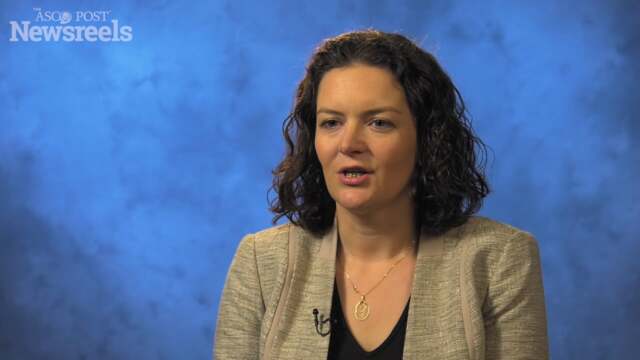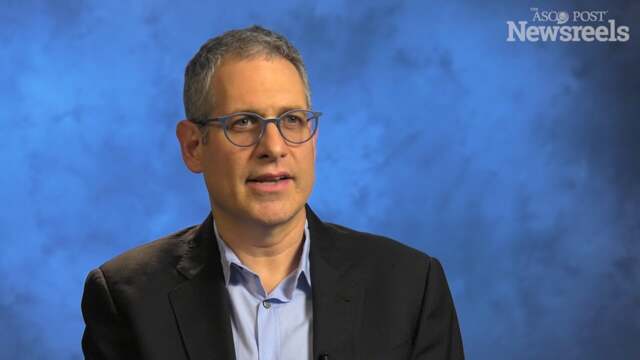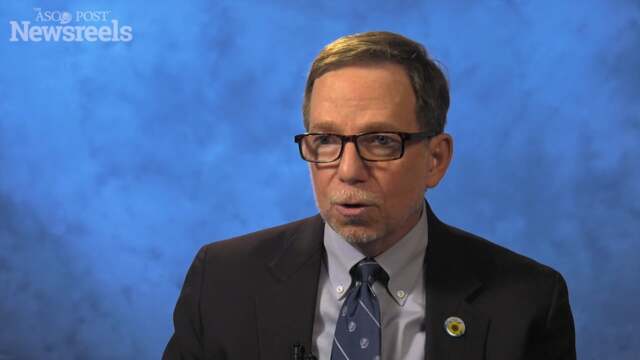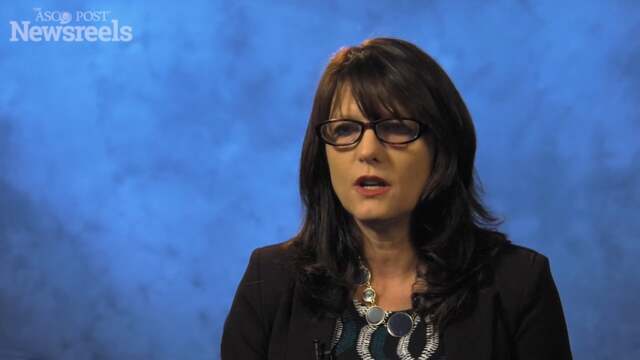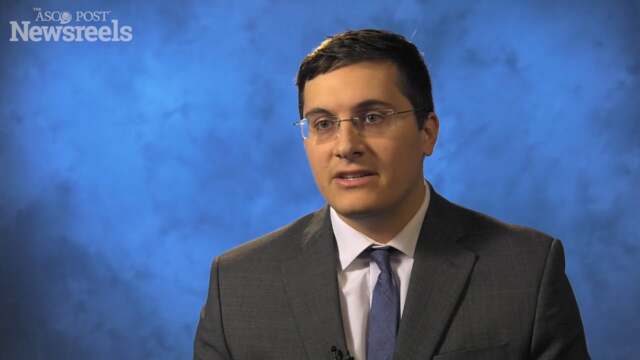Gabrielle Rocque, MD, on The Oncology Care Model: Transforming Practices
2017 Quality Care Symposium
Gabrielle Rocque, MD, of the University of Alabama at Birmingham, discusses the challenges of implementing Oncology Care Model requirements, such as providing treatment plans, and the opportunities to transform practices with improved workflow and patient outcomes.
Julie Bryar Porter, MS, of Stanford Health Care, discusses an approach to improving patient care with physician-led quality measures from diagnosis through end of life implemented at her academic cancer center (Abstract 49).
Ethan M. Basch, MD, of The University of North Carolina at Chapel Hill, discusses programs—now rolling out at various institutions—that use direct patient reporting of symptoms as a part of quality assessment (Posters 61, 81; Abstract 218).
Thomas J. Smith, MD, of the Sidney Kimmel Comprehensive Cancer Center at Johns Hopkins, summarizes two papers for which he was a discussant: reducing overuse of colony-stimulating factors without compromising the safety of patients with lung cancer receiving chemotherapy, and a cost-and-survival analysis before and after implementing Dana-Farber Clinical Pathways for patients with stage IV non–small cell lung cancer (Abstracts 3, 52).
Gwendolyn P. Quinn, PhD, of Moffitt Cancer Center, discusses the challenges that minority, LGBTQ, low-literacy, and underserved populations face in getting their voices heard and what it will take to change that.
Caleb Dulaney, MD, of the University of Alabama at Birmingham, discusses ways to broaden and improve the quality of information that women with breast cancer find—in English and Spanish—on websites of nationally recognized cancer centers (Abstract 135).
